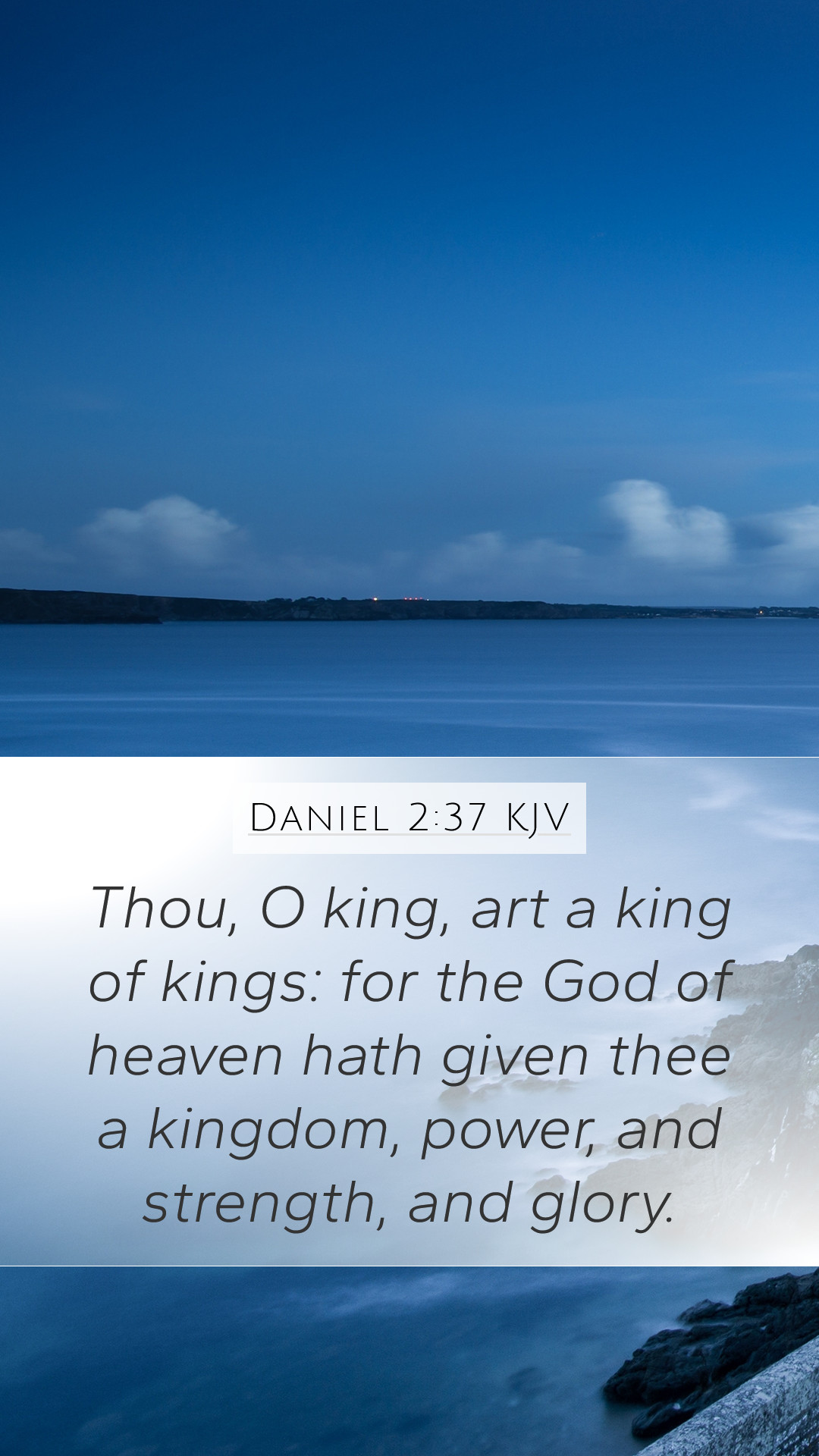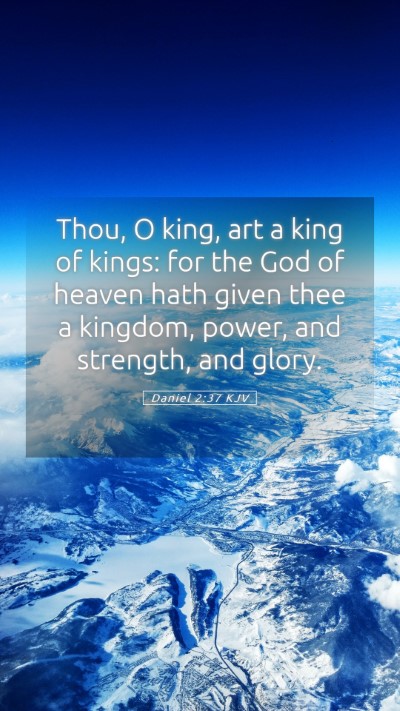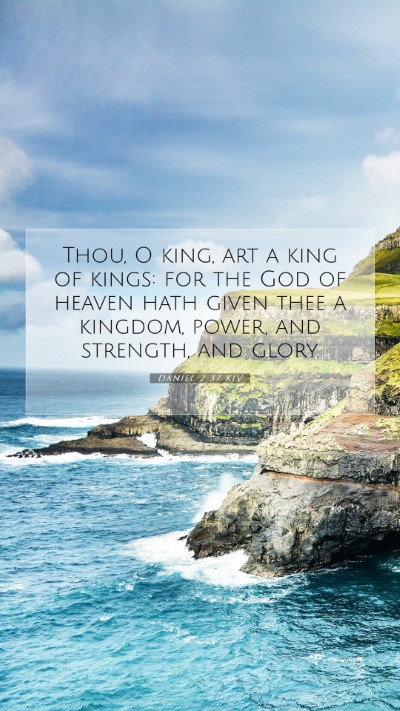Bible Verse Meaning: Daniel 2:37
Daniel 2:37 states: "Thou, O king, art a king of kings: for the God of heaven hath given thee a kingdom, power, and strength, and glory."
This verse is part of a larger narrative in the Book of Daniel, which focuses on God's sovereignty over the kingdoms of men and His ultimate control over history. In this passage, Daniel is interpreting King Nebuchadnezzar’s dream, which symbolizes different kingdoms that will arise, with the most immediate reference being to Babylon.
Interpretation and Insights
The commentary from various biblical scholars adds depth to our Bible verse interpretation of Daniel 2:37, revealing the significance of kingship and divine providence.
Matthew Henry’s Commentary
Matthew Henry explains that Nebuchadnezzar, as the head of gold in his dream, represents the pinnacle of earthly power and majesty. God, in His sovereignty, has bestowed this authority upon him, establishing a framework of divine appointment. Henry emphasizes that regardless of a ruler's power, it ultimately derives from God, reminding us of the transient nature of earthly authority.
Albert Barnes’ Commentary
Albert Barnes further elaborates on the implications of kingship. He notes that the title "king of kings" indicates not just supreme authority but also an acknowledgment of the divine source of that power. Barnes highlights the significance of recognizing that earthly dominions and the abilities of rulers are allowed by God as a part of His overall plan for humanity, reinforcing the concept of divine sovereignty in the allocation of power.
Adam Clarke’s Commentary
Adam Clarke takes a theological perspective, interpreting that this verse underlines the vulnerability and responsibility of leadership. He expounds that while Nebuchadnezzar is powerful, he remains answerable to God for his actions. Clarke's interpretation emphasizes the moral duties tied to leadership roles, which resonate with contemporary discussions on governance and authority.
Key Themes and Concepts
- Divine Sovereignty: This verse profoundly asserts that all authority, power, and glory come from God.
- Human Responsibility: Leaders are accountable for their governance and actions in accordance with God’s will.
- Temporary Nature of Earthly Kingdoms: God establishes and deposes kingdoms according to His divine plan, stressing the impermanence of worldly power.
- Scripture Analysis: This passage invites readers to reflect on how they interpret current events and leadership through the lens of faith.
Application of Daniel 2:37
Reflecting on Daniel 2:37 allows believers to consider how they engage with worldly authority. In studying this verse, one can draw applications to daily life by:
- Recognizing the ultimate authority of God in all aspects of governance.
- Understanding the importance of integrity and moral responsibility in positions of power.
- Utilizing this scripture as a foundation for prayer for leaders and nations, acknowledging their need for divine wisdom.
Cross References
- Proverbs 21:1: "The king's heart is in the hand of the Lord, as the rivers of water: he turneth it whithersoever he will."
- Romans 13:1: "Let every soul be subject unto the higher powers. For there is no power but of God: the powers that be are ordained of God."
- Revelation 1:5: "And from Jesus Christ, who is the faithful witness, and the first begotten of the dead, and the prince of the kings of the earth."
In conclusion, Daniel 2:37 serves as a profound reminder of God’s control over earthly realms and the significance of recognizing His authority in all leaders. It challenges us to pursue Bible study insights that deepen our understanding of power in conjunction with divine will.


